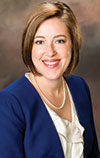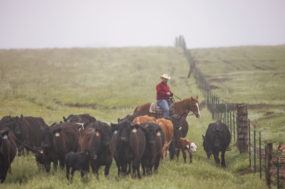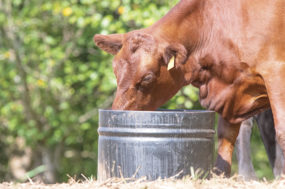Fall in the Southeast often coincides with bull sale season, and many farmers are making buying decisions that will influence the genetic makeup of their herds for years to come. Beef bulls must be developed properly after weaning to become productive herd sires. Management of newly purchased yearling bulls is critical since yearling bulls are still growing and maturing. Proper management leading to acceptable growth in yearling bulls ensures that newly purchased bulls have a more productive future as a herd sire.
With on-farm arrival after purchase, many yearling bulls “fall off” nutritionally upon entering into a new herd. This is because they are immediately put out with cows for breeding season and experience a natural drop in body condition, and they are not maintained on the same plane of nutrition.
After the first breeding season, bulls may need to regain several hundred pounds of bodyweight depending on condition losses. Proper feeding and development of yearling bulls should continue following the breeding season in order to maintain bulls in good body condition and keep them on an increasing plane of nutrition.
Observe bull body condition and make supplemental feeding adjustments as appropriate based on the stage of growth. In general, bulls should reach 75% of their mature weight by two years of age. To achieve this goal in most cases, yearling bulls may require 1.5 to 2 pounds per day gain following a 60-day breeding season.
As bulls mature, their daily energy and protein requirements are used more for maintenance. In general, mature bulls can be maintained on moderate-quality pasture during the off-season. They should be maintained to enter the breeding season with a body condition score of 6. Visually evaluate bulls at least 60 days prior to the breeding season and make nutritional adjustments as needed for maintenance of body condition.
Bull fertility can be negatively affected if body condition scores are excessively high or low. During the breeding season, it is not uncommon for bulls to lose condition. Even mature bulls may require supplemental feedstuffs to regain lost bodyweight following the breeding season if pasture quality is low.
In summary, for bulls to achieve their full growth potential and successfully perform as a breeding bull, nutritional requirements must be met. Evaluate available resources to best provide appropriate nutrition as bull requirements change from development to maturity.








